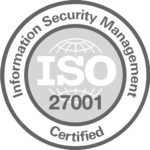If you are looking for ways to enhance your career as a project manager, then this article is for you.
In it, you will discover 7 ways to level up your project management skills in all the common areas for improvement, including communication, leadership, relationships, time management, delegation, and more.
Without further ado, let’s dive right in.
1. Create a Consistent Plan for Communication
Communication is one of the primary responsibilities of a project manager.
It’s important to be able to communicate effectively with team members and stakeholders, which is why this is one of the first things to consider when looking for ways to develop your project management skills.
For each project you manage, you should come up with a consistent communication plan.
Determine everyone who has to be up-to-date, and then choose methods for reaching them.
For instance, you could use:
One-on-one meetings
- Emails
- Webinars
- Group meetings
- Status reports, etc.
You can even have an “open door” policy that allows others to discuss issues with you at any time.
Neal Taparia, a serial entrepreneur who runs gaming studio Solitaired, explains, “Our project managers send daily email updates. They outline progress and even align it to our KPIs like the number of solitaire games played. This ensures our team is fully in sync and that we are always measuring our progress towards our goals”.
Additionally, make sure that you manage expectations by taking immediate action to address any problems that arise.
Once you have a solid action plan for how you will handle any issues or concerns, you can then present it to your stakeholders.
2. Learn About Leadership
For the most part, successful projects are related to leadership. That’s why it’s crucial to take the time to learn about leadership in project management.
And no, I’m not just talking about understanding the difference between your company’s CEO and President.
Understanding the skill of leadership will help you gain the experience and skills required to handle a variety of tasks at the same time.
As a leader, you must be responsible and prioritize. You need to find a balance, which can often be challenging in most projects.
But, once you understand how to manage and lead others, you will find your job as a project manager goes a lot smoother.
To achieve this, you first need to educate yourself. Whether that’s with online courses, virtual talks, listening to podcasts, or simply reading a blog, understanding leadership is crucial.
Second, you need to understand the people you work with.
Get to know the strengths and weaknesses of your team members so you can align tasks with the most appropriate skill sets.
By getting to know your team better, you will also be able to find ways to inspire and motivate them to reach higher levels of productivity and success.
3. Build Stronger Relationships
This point is closely related to the one above, and to succeed as a project manager, you need to be able to build relationships with upper management and your team members.
The stronger your relationships, the easier it will be for you to move forward smoothly and effectively troubleshoot whenever necessary.
You can achieve this by being transparent, approachable, and accessible as a manager.
This will help you create a working environment where everyone is comfortable talking to you and you will ultimately make them feel acknowledged and appreciated.
4. Master Time Management
One of the main responsibilities of a project manager is to ensure that projects are delivered on time and within budget.
Unfortunately, time management also happens to be one of the top 5 skills managers are lacking, as evidenced by the graph below:
Studies have shown that a lot of modern workers spend up to 80% of their time every day on collaborative activities, such as making calls, responding to emails, attending meetings, etc.
They end up with very little time for the main work that contributes to real progress on the project.
That’s why time management is such an important skill to master.
There are many different ways you can improve this aspect of your project management career, such as using a standardized schedule and time tracking templates for your team.
This makes everything transparent and ensures that everyone on your team understands their role in the bigger picture.
It will also help you ascertain the length of time each task takes so you can allocate resources better.
5. Delegate Properly
As a leader, it’s up to you to delegate properly to ensure that each task is done by the best person for the job.
You also need to be a positive influence, which means you must cultivate positive dynamics in your team and take on the role of a mentor so you can guide team members toward success.
Remember, you are the captain of the ship and your team is your crew.
It’s up to you to train them, guide them, and inspire them to do better.
For you to be able to do this effectively, you must learn the skill of delegating (which is a crucial part of any PMP training) and providing support so that the rest of the team can thrive on the choices you make and the guidance you provide.
6. Set Clear Expectations
Your success as a project manager comes down to being able to define the milestones of any project:
- Initiation
- Planning
- Execution
- Closure
You need to track the progress at every stage of the project execution, including examining the deliverables, tracking technical documents, following project plans and specifications, etc.
This plan is something you can create as you go. You must be flexible and do your best to anticipate as many potential problems as possible.
But, ultimately, accept that you can’t fix them all and find alternatives so you can move forward.
7. Use the Right Tools
Studies show that over 77% of high-performing projects make use of project management software.
To join the ranks of successful project managers, you need to have the best project management tools at your disposal.
Identify any areas that can be improved in your processes and procedures and then invest in the proper tools to fill those gaps.
The right tools will help you:
- Save time
- Provide visibility via status reports
- Manage and optimize workflows
… and much more!
As project managers, you already know the core of the matter – a high level project plan is an essential component to any successful endeavor because it will help you gain a strategic view of the whole project, greater control over resource planning and clearer progress tracking.
So before investing into different tools you could at first try using free templates or demo versions of the tools you need so you can get a better understanding of what will work best for your needs.
Conclusion
I hope you found this article helpful. Use the tips in it to help you level up your project management skills in 2021.
Ron Stefanski is an internet business expert and marketing professor who has a passion for helping people create and market online businesses. You can learn more from him by visiting OneHourProfessor.com
You can also connect with him on YouTube or Linkedin.




